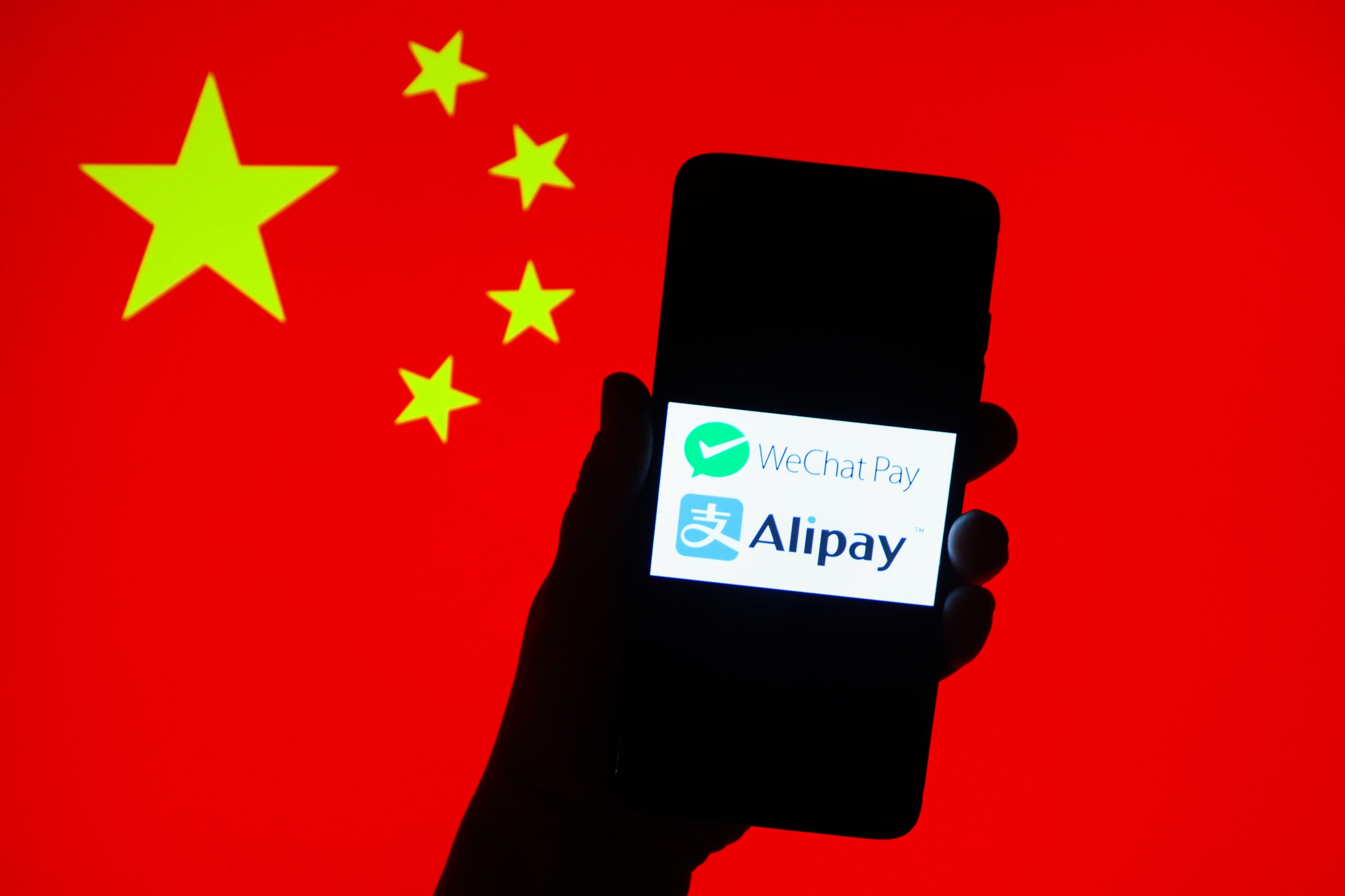
Chinese ecommerce behemoth Alibaba is now allowing consumers to use WeChat Pay, a mobile payment platform developed by its rival Tencent, on a number of its platforms. Earlier this month, Tencent-owned WeChat suspended its time-honoured practice of blocking rival links from its app, following Beijing’s campaign against monopolistic practices among China’s big tech firms.
Several Alibaba platforms – including food delivery service Ele.me, video-streaming website Youku and online ticketing platform Damai – now offer WeChat Pay as one of the payment options alongside Alibaba’s own Alipay service.
Moreover, Alibaba said on Tuesday that its bargain marketplace Taobao Deals, second-hand ecommerce platform Idle Fish and its grocery chain Freshippo were waiting for Tencent’s approval to include WeChat Pay on their services.
Two weeks ago, WeChat began allowing links to rival platforms to be shared in one-to-one chats. For external links in group chats, the company said it would develop more functions to enable users to “make their own choices”.
These announcements come after Chinese regulators urged big tech firms to terminate monopolistic practices that blocked hyperlinks and payment methods from rival companies.
For years, corporations such as Alibaba and Tencent had built walled-garden ecosystems to stifle the growth of rival companies and prevent customers from spending money elsewhere.
How well do you really know your competitors?
Access the most comprehensive Company Profiles on the market, powered by GlobalData. Save hours of research. Gain competitive edge.

Thank you!
Your download email will arrive shortly
Not ready to buy yet? Download a free sample
We are confident about the unique quality of our Company Profiles. However, we want you to make the most beneficial decision for your business, so we offer a free sample that you can download by submitting the below form
By GlobalDataFor instance, Alibaba’s ecommerce platform Taobao has Alipay as its default payment option, omitting its main rival WeChat Pay. Similarly, JD.com, another major Chinese ecommerce platform backed by Tencent, encourages users to check out using WeChat Pay.
Earlier this month, China’s Ministry of Industry and Information Technology (MIIT) issued an ultimatum to internet companies to open up their walled gardens and allow rival links on their sites or risk regulatory action.
“The development of the Internet must be able to make people’s lives more convenient, facilitate the development of all aspects, and ultimately promote the healthy and orderly development of the internet industry and platform economy,” said Xiao Yaqing, China’s Minister of Industry and Information Technology at a press conference in September.
The MIIT met with executives from leading tech firms including Tencent, Alibaba, ByteDance and Baidu and pressed them on dismantling link blockades. Companies were ordered to submit plans by September 17.
There is some disagreement among Chinese regulators on how to dismantle these walls, as there is concern that wholly open and unrestricted connectivity will increase the difficulty of supervision, one industry source told Caixin.
While the MIIT wants to foster healthy growth of the internet industry, cybersecurity regulators focus more on content security. Meanwhile, the public security department is concerned about online fraud, another person close to the matter said.
A redistribution of internet traffic in China’s online ecosystem would be a welcome change for smaller players.
“We have been suffering [from Big Tech’s link blocking] for a long time,” a unnamed data company executive told Caixin. “We are all eagerly waiting for the traffic to be redistributed and expecting further policy clarification.”
This is an issue that is increasingly on the radar of lawmakers and regulators around the globe. Recently, the world’s most valuable company has come under fire for similar practices.
In the latest high-profile case between Apple and game developer Epic Games, a Californian judged ruled in favour of the Cupertino-based giant on nine out of ten counts. However, the court ruled against a key aspect that allows developers to direct users to payment options outside of the iOS App Store.
In addition, South Korea recently passed a bill permitting developers to use their own payment systems, effectively blocking major app store operators from collecting app purchase commissions.
US lawmakers have proposed similar legislation in a bipartisan push to rein in America’s tech titans.
On Tuesday, Microsoft said it would allow other companies such as Epic Games and Amazon to integrate their storefronts into its own app store, in the tech giant’s latest deviation from Apple and Google app store policy.






